Welcome to KIT HealthTech
The KIT Center „Health Technologies“ promotes the digital transformation of medical technologies, humanoid robotics, personalized medicine and health care to provide next generation innovation for the global health challenges of today and tomorrow.
If you want to become a member of KIT HealthTech, please fill the application form.
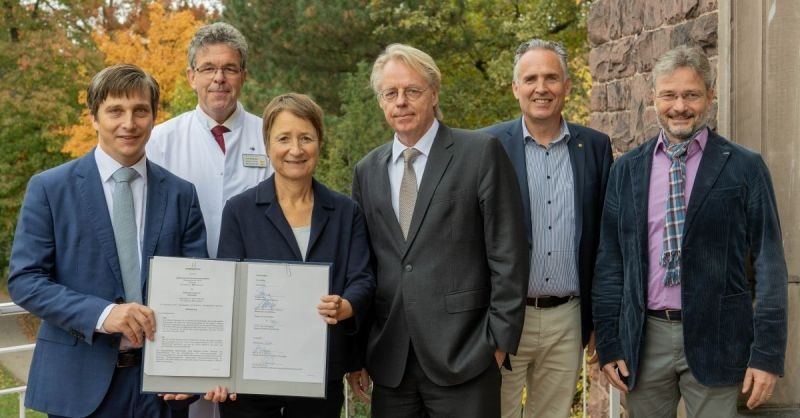
Innovation in healthcare: KIT and Städtisches Klinikum Karlsruhe are intensifying their collaboration. As part of a cooperation agreement, the two institutions in Karlsruhe have joined forces to integrate university research and clinical expertise even more closely. This will benefit both the hospital's patients and the students and researchers at KIT.
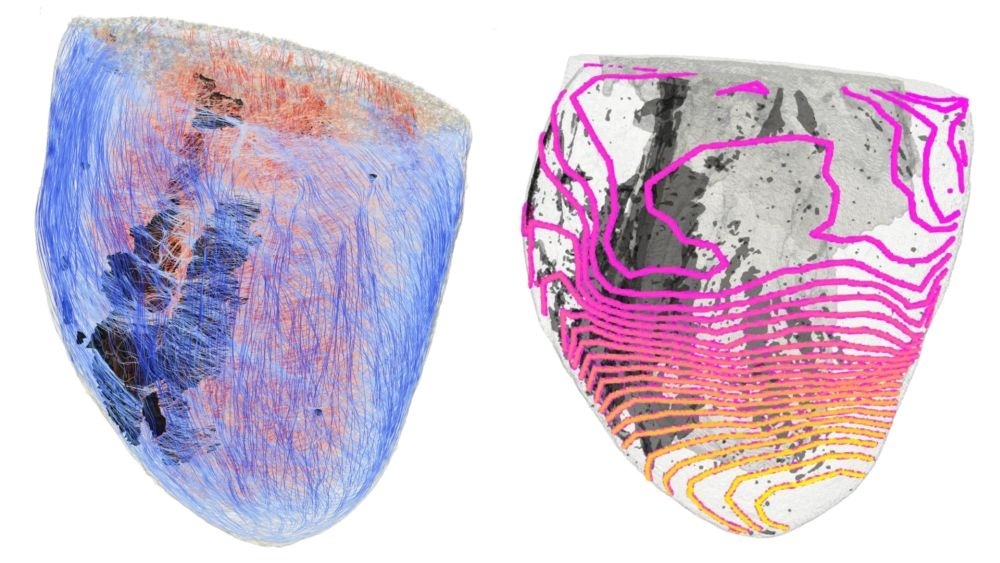
Innovative imaging technique reveals hidden electrical connections in diseased hearts and provides new therapeutic approaches. Results of this collaborative study were published in Nature Cardiovascular Research and picked up by Focus and Berliner Morgenpost.
More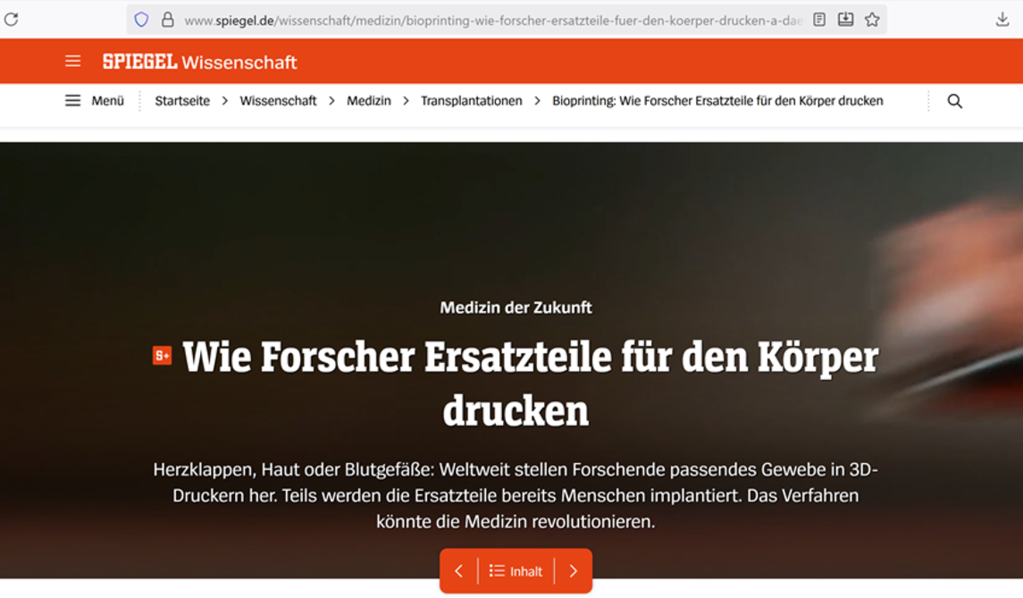
The printer for human tissue printing is located in a laboratory at the Karlsruhe Institute of Technology (KIT). It is about the size of three shoe boxes stacked on top of each other. Hidden in a white housing with a black front, the machine produces a heart valve layer by layer, so tiny that it would fit into a baby's heart. It takes just two minutes to print the full body part from vegan materials.
More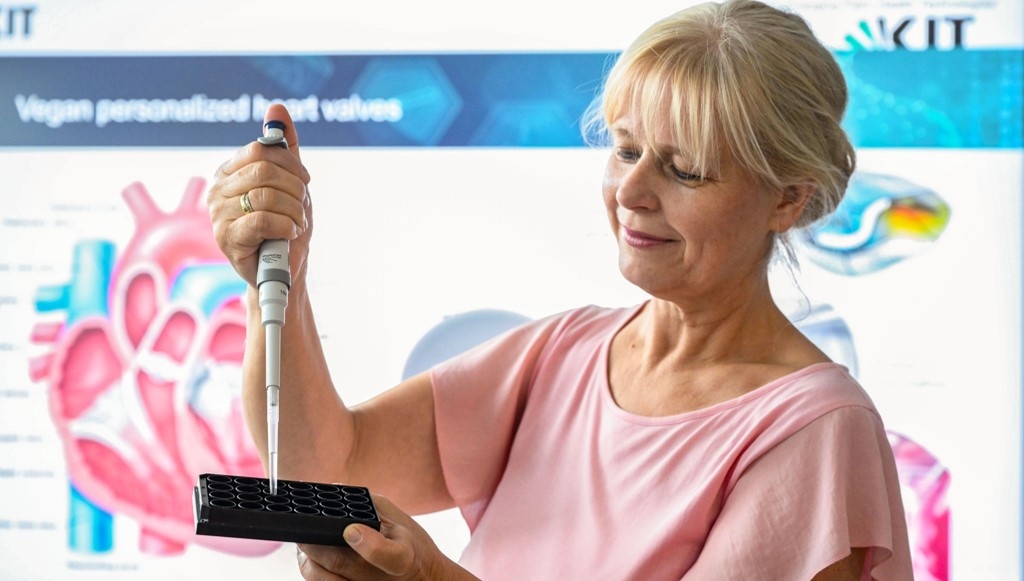
Even with tweezers, the artificial baby heart valve is almost impossible to grasp, it is so tiny. And yet it has everything a doctor would need to sew it in, explains Ute Schepers from the Institute of Functional Interfaces at the Karlsruhe Institute of Technology (KIT). The heart valve was created using a modern 3D printer. The starting material comes from collagen-producing bacteria. "It was actually intended as a lip filler," says the head of the Chemical Biology department. In a future application, this will be supplemented with the patient's own cells. Big hopes are being pinned on 3D bioprinting.
More
In the 200th year of its existence, Karlsruhe Institute of Technology (KIT) opens its doors again to interested visitors. On Saturday, May 17, 2025, KIT’s Campus South near Karlsruhe city center will turn into a festival mile from 10:00 to 19:00 hrs, celebrating science – visitors are invited to watch, join in, and engage in conversation. The program with more than three hundred individual activities on offer is an event for the whole family. It is rounded off by the KIT Campus Day to show prospective students in various ways what makes studying at KIT something special. KIT Health Tech also presented innovation in health technologies to the public
More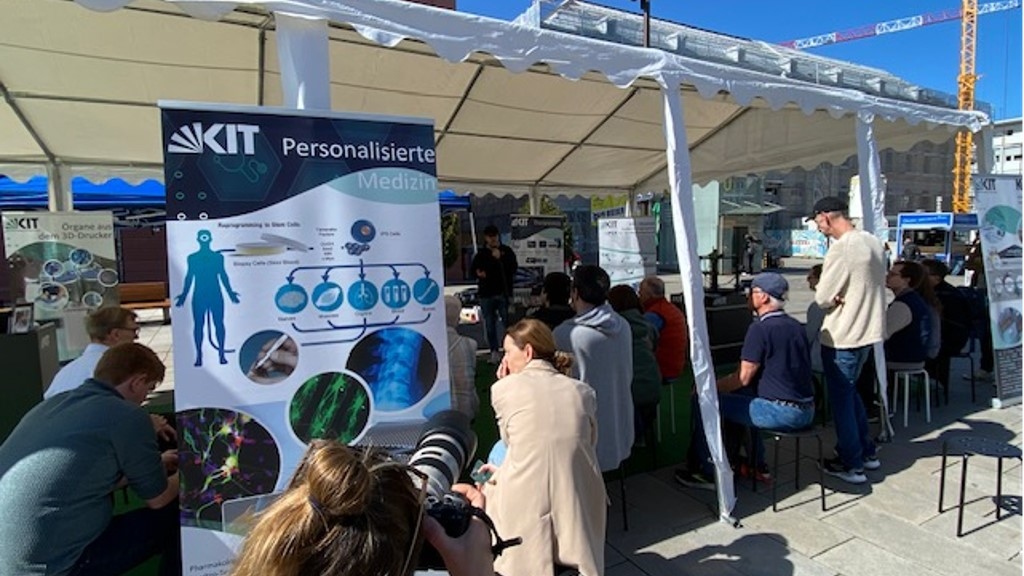
KIT Health Week" refers to WISSENSWOCHE Health, a four-day event held by the Karlsruher Institut für Technologie (KIT) in March 2025 that showcased innovations from the KIT HealthTech Center, focusing on Artificial Intelligence (AI) in medicine and HealthTech. This event provided insights into new health technologies and included discussions with members of the KIT HealthTech Center.
More
Numerical simulation makes it possible to model very different processes, from the weather to nuclear fusion to individual body organs. This requires highly scalable algorithms that can be put together from a mathematical library like a construction kit.
An article in the current issue of c't Magazine für Computertechnik reports on the research at KIT's Institute of Biomedical Engineering and collaborators.
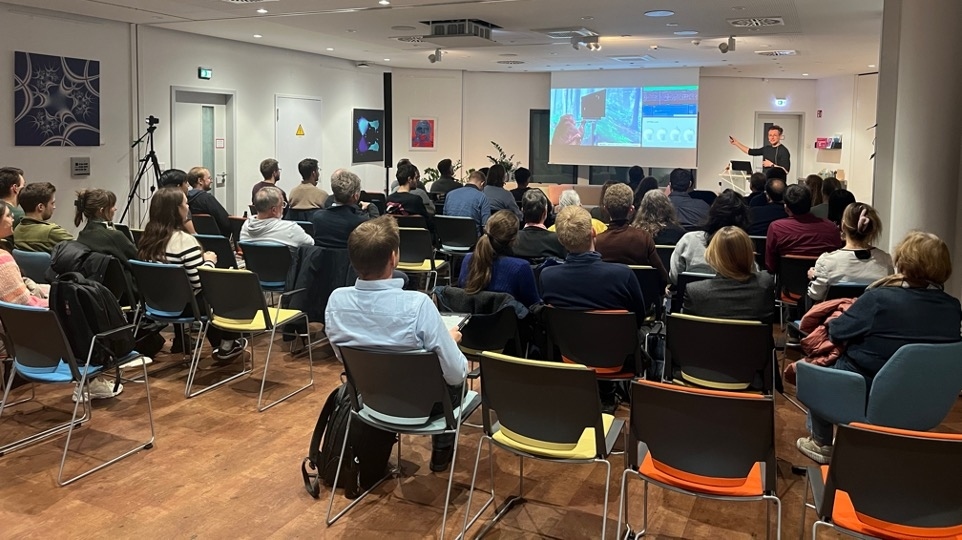
On November 15th, the very first Nacht der Biosignale took place. Simultaneous talks on the fascinating topic of biosignals were held at twelve locations across Germany, including Aachen, Augsburg, Bremen, Dresden, Göttingen, Ilmenau, Jena, Karlsruhe, Kiel, Cologne, Krefeld, and Münster.
Thanks to a live stream on YouTube, the talks were also accessible to an online audience. The event was met with great enthusiasm, with the Triangel venue filling up with curious citizens eager to dive into the captivating world of biosignals.
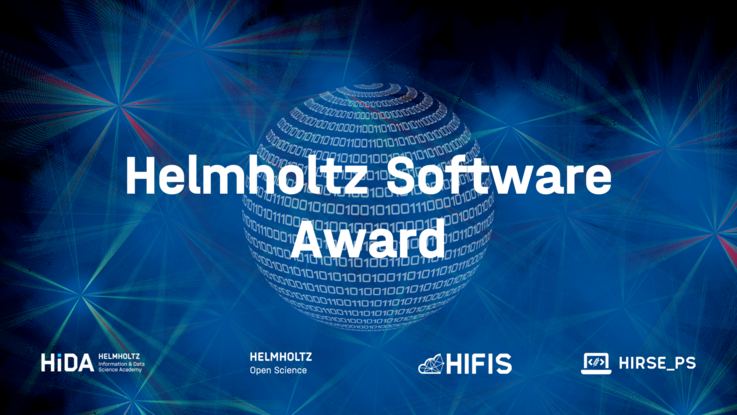
The openCARP cardiac electrophysiology simulator openCARP developed by IBT and collaborators won the Helmholtz Software Award in the Newcomer category. The award aims to promote the development of professional and high-quality research software and to recognize the commitment to software as the basis of modern science.
[more@Helmholtz]
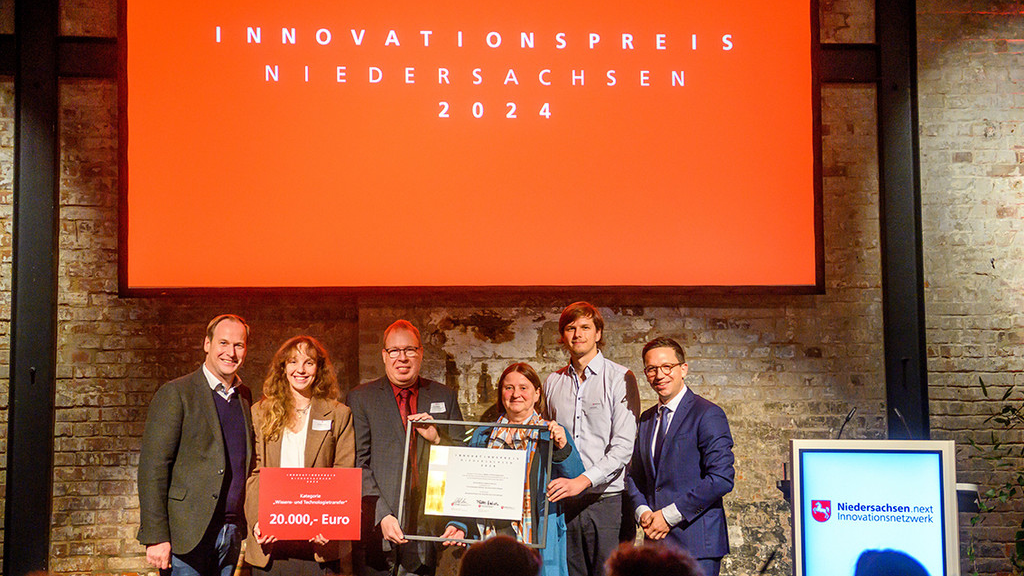
The Niedersachsen.next innovation network has honoured NanoDrug Delivery GmbH with the Niedersachsen 2024 Innovation Award in the "Knowledge and Technology Transfer" category. The spin-off of the University Medical Centre Göttingen (UMG), the Max Planck Institute (MPI) for Multidisciplinary Natural Sciences and the Karlsruhe Institute of Technology (KIT) received the award for its development of tiny transport systems for active medical ingredients.
More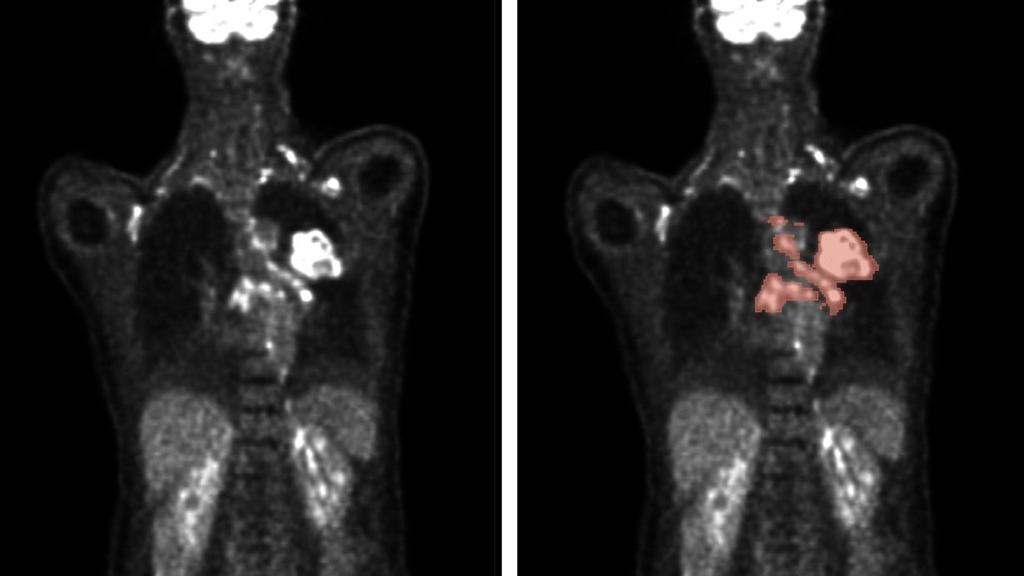
Artificial intelligence can improve the analysis of medical image data. For example, algorithms based on deep learning can determine the location and size of tumours. This is the result of autoPET, an international competition for medical image analysis. Researchers from the Karlsruhe Institute of Technology (KIT) took fifth place. The seven best autoPET teams report in the journal Nature Machine Intelligence (DOI: 10.1038/s42256-024-00912-9) on how algorithms can detect tumour lesions in positron emission tomography (PET) and computed tomography (CT) scans
More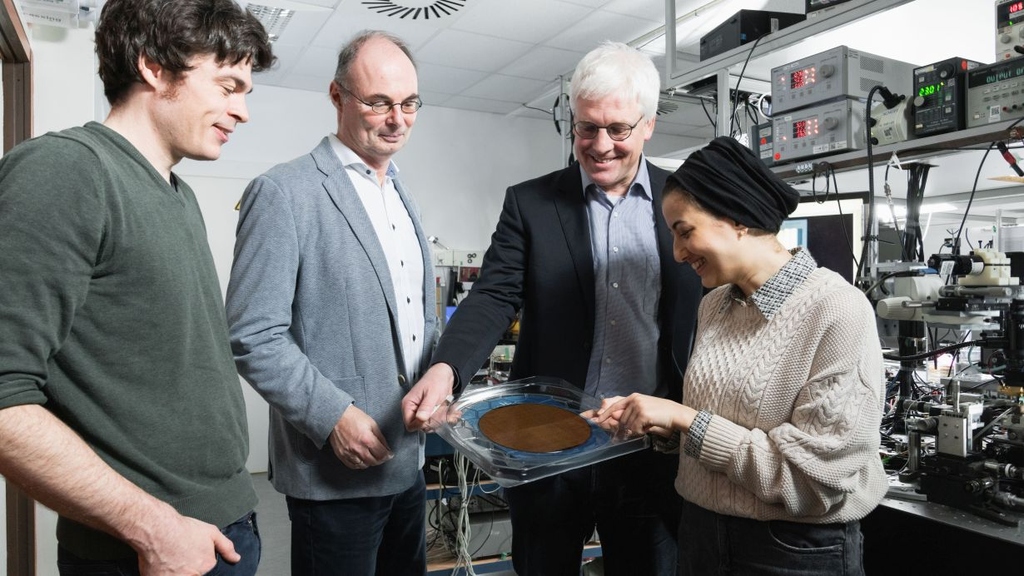
The European Research Council (ERC) is funding the ATHENS research project of Professors Christian Koos and Stefan Bräse from the Karlsruhe Institute of Technology (KIT) with a Synergy Grant. The aim is to make optical communication systems more powerful and energy-efficient. This is particularly relevant in view of the increasing requirements for the transmission of large amounts of data through applications with artificial intelligence (AI). The ERC is funding ATHENS for six years with a total of 14 million euros. The project will be carried out at the Karlsruhe Centre for Optics and Photonics (KCOP), which will open in 2025.
More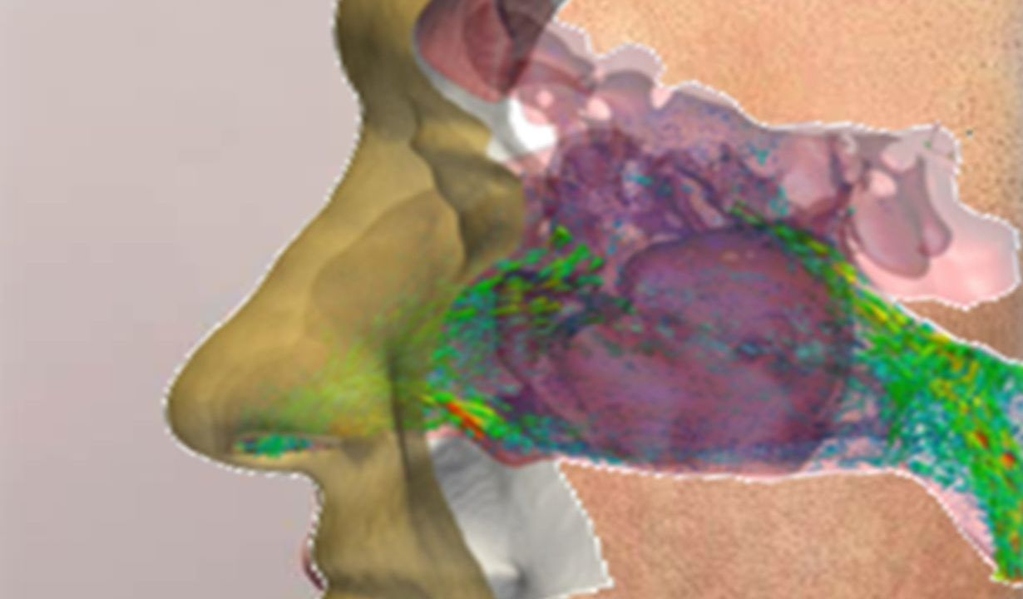
In medicine of the future, personalised computer models, so-called virtual human twins, could help with the planning of individual therapies. Human organs can already be modelled on chips and in petri dishes: Researchers are working on computer-aided methods and in-vitro technologies to reduce or even replace animal testing. The new 3R Centre 3ROCKIT at the Karlsruhe Institute of Technology (KIT) is driving forward work on such replacement methods. From 1 January 2025, it will be included by the state of Baden-Württemberg in the state-wide 3R network and funded with 100,000 euros annually for three years.
More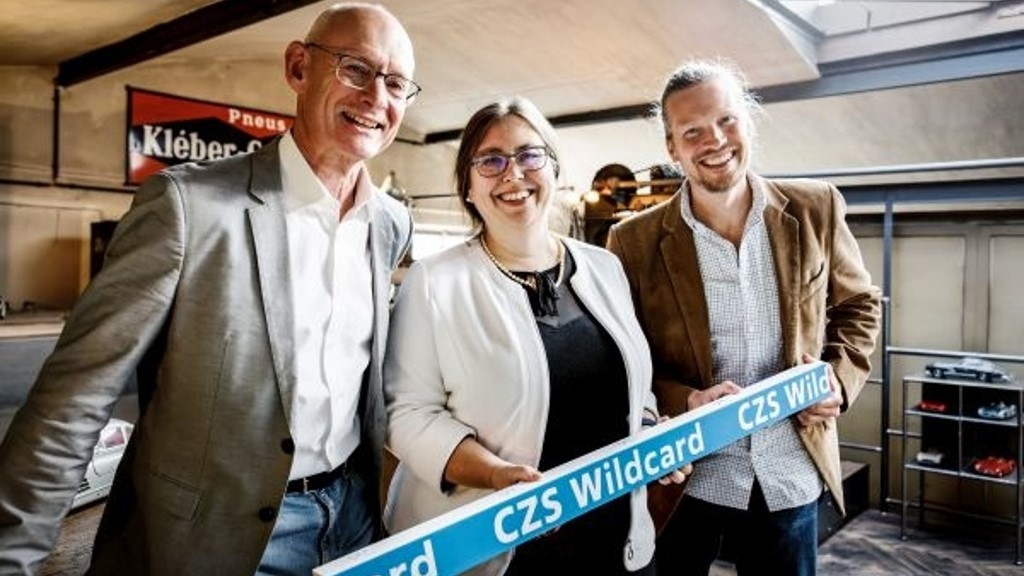
Researchers at the Karlsruhe Institute of Technology (KIT) have successfully acquired funding from the Carl Zeiss Foundation's "CZS Wildcard" programme. In the "UCART" project, physicist Professor Anke-Susanne Müller is working on a new method of radiotherapy in which tumours are irradiated directly in the body using an electron accelerator.
More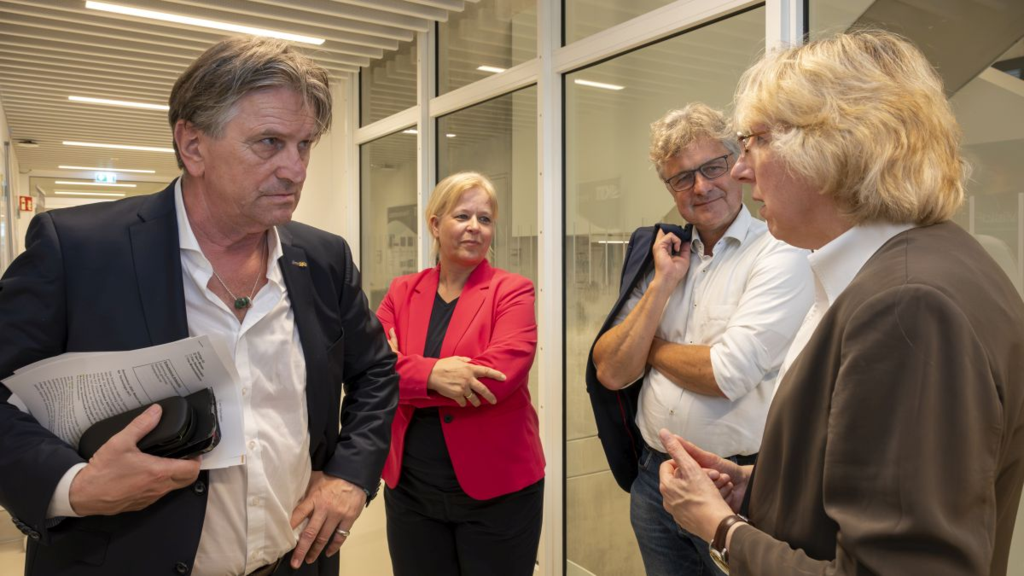
To find out about current research in the field of health technologies, Baden-Württemberg's Minister of Social Affairs, Health and Integration Manne Lucha and Karlsruhe's Lord Mayor Dr. Frank Mentrup visited the KIT Center Health Technologies (HealthTech) on August 14, 2024. This is driving forward the digital transformation of medical technologies, personalized medicine and patient care.
More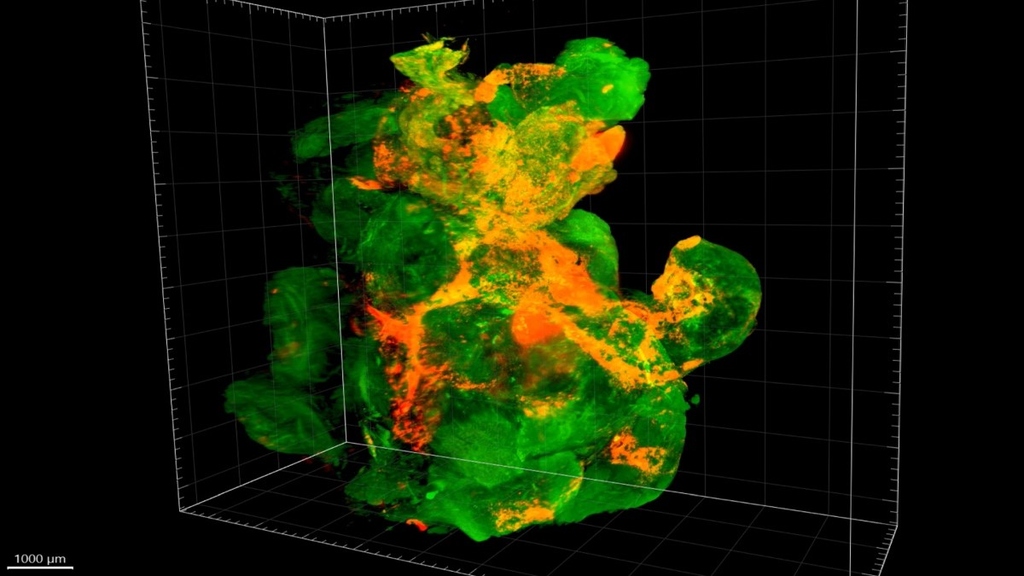
Researchers at the Karlsruhe Institute of Technology (KIT), the Max Planck Institute for Multidisciplinary Natural Sciences and the University Medical Center Göttingen have developed a groundbreaking method to treat pancreatic cancer more effectively and with fewer side effects in the future. The new treatment approach uses tiny nanoparticles that deliver drugs directly and specifically to cancer cells. This could be a breakthrough for cancer research
More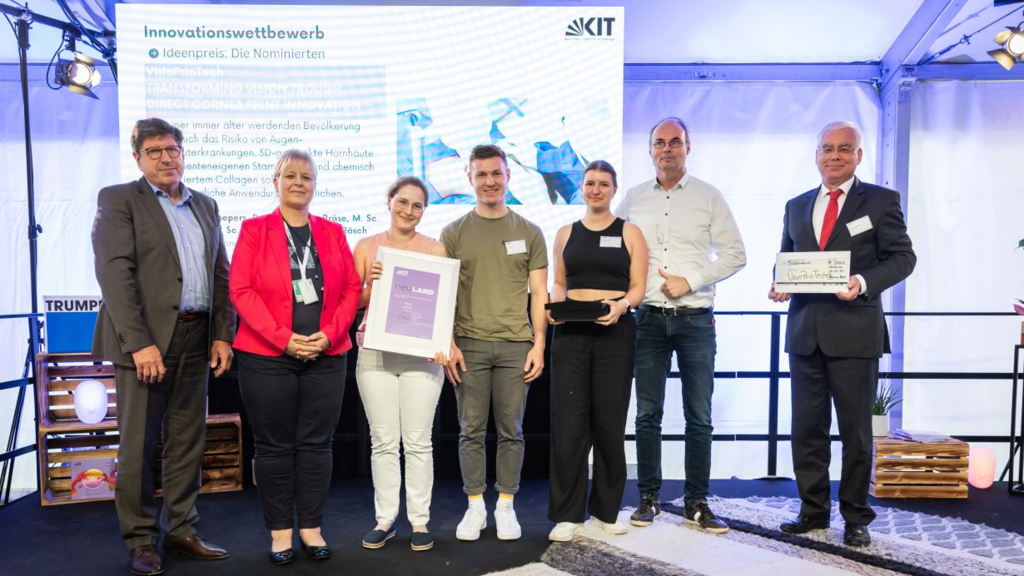
Printing a new cornea during an operation to restore a patient’s eyesight: This groundbreaking step in the fight against corneal disorders is set to become reality with a laser based process using personalized bioink. The method was developed by researchers at the Karlsruhe Institute of Technology (KIT) in collaboration with Carl Zeiss Meditec AG and Evonik Healthcare. Their project won the idea award in this year’s NEULAND innovation contest.
More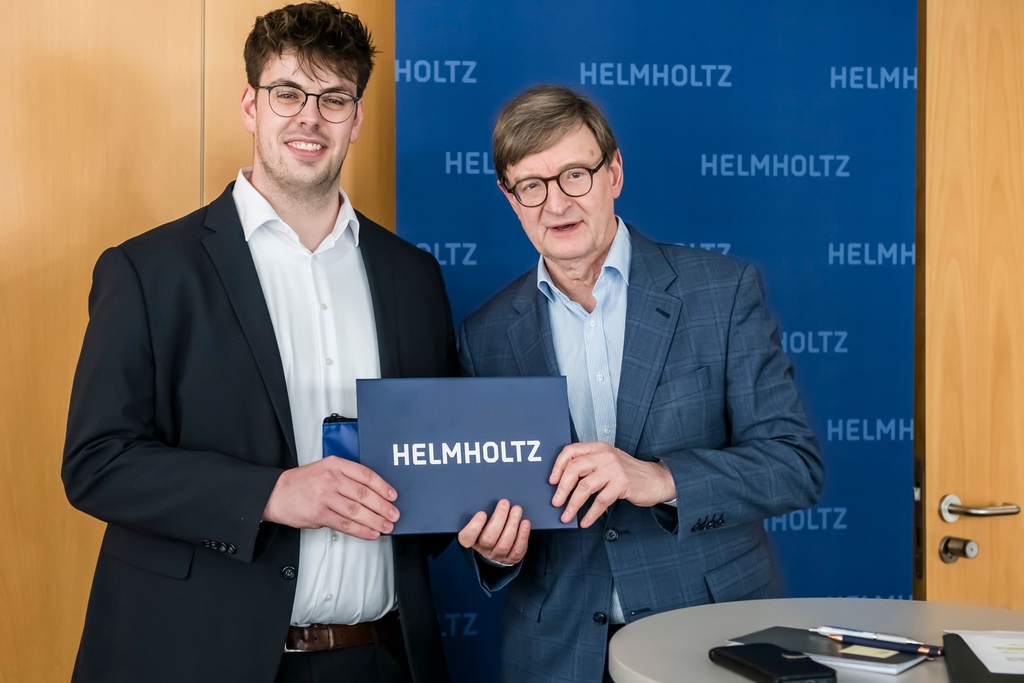
Traditionally, headphones are used to provide private audio channels. In his dissertation completed at the Karlsruhe Institute of Technology (KIT), Tobias Röddigers looks at what headphones of the future could look like. His research has shown that earables - intelligent sensor devices worn on the ear - can be used for breathing and eye monitoring, cough detection, cardiopulmonary resuscitation and invisible human-computer interaction. "Through my research, headphones are becoming multifunctional everyday helpers for health monitoring and enhancing human capabilities."
More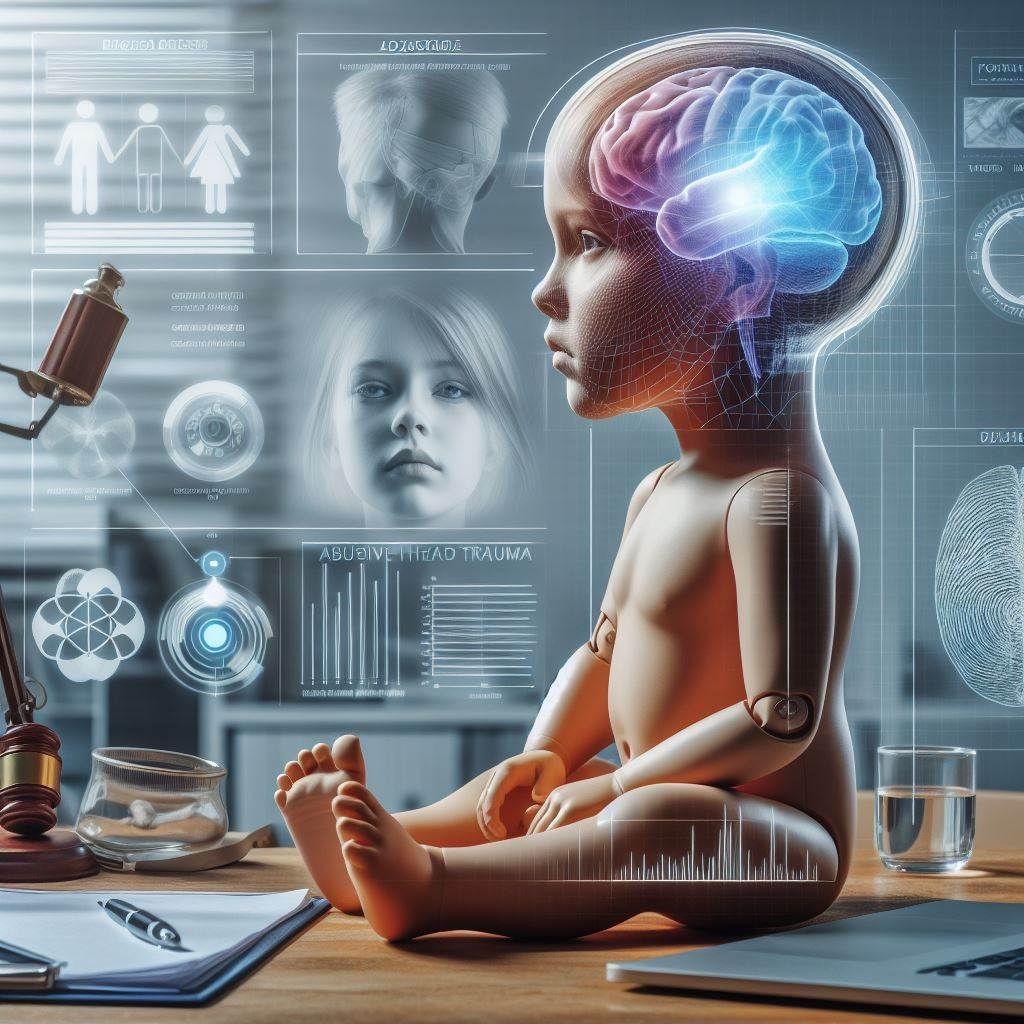
We are very happy to welcome PD Dr. Katharina Feld and Prof. Tobias Düser who will present about „Abusive Head Trauma Dummy: A Multidisciplinary Approach to Advance Pediatric Models for Aiding Diagnosis and Prevention“. We hope to see many of you in the InformatiKOM foyer (noon to 1pm) to also join the discussion and networking after the presentation. Those who cannot make it in person, can also join online.
Please spread the word and invite interested colleagues to become member of KIT HealthTech to receive future invitations directly.
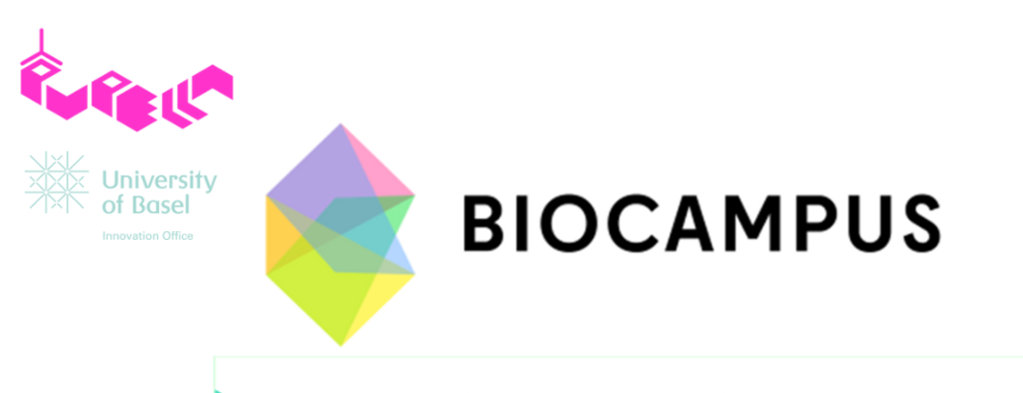
Biocampus - Transforming Upper-Rhine Valley to a world-leading innovation & integrated ecosystem for life-sciences (May 23, InformatiKOM). We are very happy to welcome Angélie Pham, Basel University, who will present online about “Biocampus” - an initiative aiming at strengthening the trinational collaboration to accelerate innovation in Life sciences in the Upper Rhine Valley (Switzerland, France and Germany). We hope to see many of you in the InformatiKOM foyer (noon to 1 pm) to also join the discussion and networking after the presentation. Those who cannot make it in person, can also join online.
Please spread the word and invite interested colleagues to become a member of KIT HealthTech to receive future invitations directly.

Congratulations to Dr Steffen Sonnentag (Group Orian-Rousseau), who won a Poster Price at the BioChem Conference 2024 Strasbourg, France

Molecular Code Stimulates Pioneer Cells to Build Blood Vessels in the Body. Cardiovascular diseases, including stroke and myocardial infarction, are the world's leading causes of mortality, accounting for over 18 million deaths a year. Ferdinand le Noble and his team has now identified a new cell type in blood vessels responsible for vascular growth. This discovery may allow for novel therapeutic strategies to treat ischemic cardiovascular diseases, i.e. diseases that are caused by reduced or absent blood flow. Nature Communications (DOI: 10.1038/s41467-024-47434-x ). Professor Ferdinand le Noble says: “To explore the therapeutic avenues, we are collaborating with chemists, tissue engineers, and artificial intelligence (AI) specialists at the 3ROCKIT platform of the Health Technologies Center established recently at Karlsruhe Institute of Technology (KITHealthTech). We congratulate the team for this highly interesting scientific publication in Nature Communications.
More
A delegation from the Helmholtz Association led by President Otmar D. Wiestler was visiting Southeast Asia. The aim of the trip was to initiate collaborations and gain detailed insights into the region's research landscape.
More
It will be a main step for the strategic direction of the KIT Center “Health Technologies” in the context of the Helmholtz Research Field information. The European Virtual Human Twins (VHT) Initiative is a flagship initiative of the European Commission to accelerate the development of integrated, validated digital representations of the human body. The Virtual Human twin across all scales hold substantial potential for medical research and health technologies, contributing to a deeper understanding of human physiology, pathology in health and disease, as well as facilitating personalized, and stratified medicine. This Initiative includes the envisaged European “Virtual Human Twin” platform, fostering collaboration and resource sharing to propel the development of science and technology required for building highly advanced “Virtual Human Twins “ for future medical applications and health.
More
Join the Curious 2024 Future Insight Conference to explore the most promising breakthrough across impactful areas of science: More
Submit abstract
During her start-up tour through Karlsruhe and Stuttgart, Petra Olschowski, Minister of Science, Research and the Arts Baden-Württemberg, visited the Karlsruhe Institute of Technology (KIT) on Wednesday, March 27, 2024. She learned about funding and support opportunities for research-based spin-offs.
The KIT Center for Health Technologies (KITHealthTech), where more than 150 KIT researchers are working on medical technologies and personalized medicine, also introduced itself and its digital platform "KARE" . ("Karlsruhe Region of Health Technologies"). The focus is on the care of patients and their integration into the work of the center in order to establish a national data space for health technol.ogies


We warmly welcome Simone Mayer as the newest member of the KIT Center HealthTech. Joining KIT in February 2024 as a W3 Professor for Systemic Cellular Neurobiology at the Karlsruhe Institute of Technology (KIT), She spent several year of scademic research in well known intstitutions such as the University of Cambridge (UK), the University Göttingen, the Broad Stem Cell Center of the University of California, and the Hertie Institute at the University of Tübingen. During this time, she developed a pioneering technique for multimodal single-cell analysis. Her outstanding contributions were recognized with the Eva Luise Köher Research Award in 2023 and a Chan Zuckerberg Initiative Grant in 2022.
More
We are very happy to announce the talk
A look into the future - organs from the 3D printer
by Ute Schepers, KIT, Institute of Functional Interfaces.
We hope to see many of you in the InformatiKOM foyer (noon to 1pm) to also join the discussion and networking after the presentation. Those who cannot make it in person, can also join online.
Please spread the word and invite interested colleagues to become member of KIT HealthTech to receive future invitations directly.

We are very happy to welcome
Tim Gutmann, Faculty of Law, Augsburg University
who will present about
The European Health Data Space as a Catalyst for Innovation? – The Legal Challenges and Opportunities behind Designing Innovative Ecosystems for Health Data
We hope to see many of you in the InformatiKOM foyer (noon to 1pm) to also join the discussion and networking after the presentation. Those who cannot make it in person, can also join online.
Please spread the word and invite interested colleagues to become member of KIT HealthTech to receive future invitations directly.

KITHealthTech presents at Karlsruhe City Hall
"KIT im Rathaus" WS23/24
Monday, January 29, 2024, 6.30 p.m.
More

To support the transformation in healthcare, the new KIT Center for Health Technologies (KITHealthTech) was recently launched at KIT. More than 150 KIT researchers from various disciplines such as medical technology, robotics, material and life sciences as well as data sciences work together in an interdisciplinary manner. Some of them presented the key aspects of their work at the current theme day of the KIT Business Club.
More
